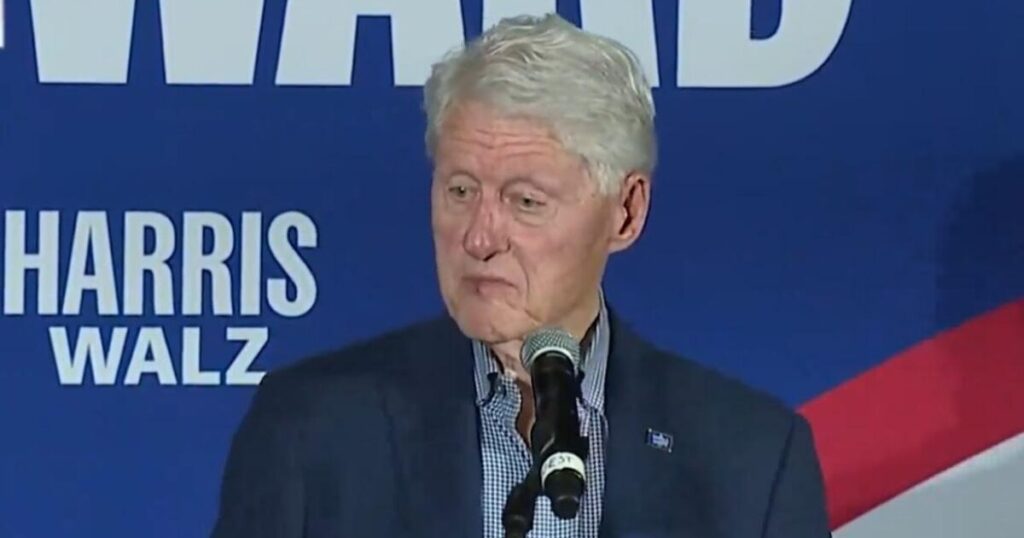In a controversial moment during a campaign event, former President Bill Clinton acknowledged a stark connection between immigration policies and the tragic murder of 22-year-old Laken Riley, a University of Georgia student killed by an undocumented immigrant. Clinton suggested that if the immigration system had been adequately regulated and people properly vetted, Riley’s death could have been prevented. This statement stirred intense scrutiny, especially given the context of the upcoming elections, as it inadvertently placed blame on current Vice President Kamala Harris regarding her responsibilities at the border.
Clinton’s remarks came amid a campaign effort to rally support for Kamala Harris and other Democratic candidates just weeks before the election. Despite his intention to bolster Harris’s image, his comments underscored a deep vulnerability within her political standing. By linking Harris to a tragic incident and suggesting shortcomings in her role overseeing border security, Clinton inadvertently gave critics ammunition to undermine her candidacy. His statement was particularly startling given its juxtaposition against the objective of his appearance, which was to energize voters for the Democratic ticket.
His comments highlighted a significant challenge that the Democratic Party faces: addressing concerns about immigration while defending their policies. Critiques from within the party have increasingly emerged, signaling dissatisfaction among voters who may feel that immigration impacts their safety and social stability. Clinton’s admission that “Kamala Harris is extremely vulnerable” reflects the party’s acknowledgment of rising discontent, amplified by controversies surrounding immigration and border management that have persisted during Biden’s presidency.
Furthermore, Clinton’s comments revealed a chink in the armor of Harris’s political position. Recent polling indicates that nearly half of the electorate views former President Donald Trump favorably, regardless of his controversial actions and statements. Harris’s perception among voters is closely tied to President Biden’s approval ratings, suggesting that the Democratic Party’s strategy relies heavily on Biden’s performance, which has been plagued by economic concerns and discontent over major issues like inflation and immigration.
In these politically charged times, Clinton’s cascading narrative that Harris faces “crazy attacks” adds complexity to the electoral landscape. Despite his defense of her character, his assertion that she is more vulnerable than she deserves to be hints at the self-perpetuating cycle of political strife in which public perception can swiftly turn based on fleeting events or remarks. This situation emphasizes the precarious balance of a successful campaign – appealing to voters while managing internal and external criticisms.
Ultimately, Bill Clinton’s appearance on the campaign trail in support of Kamala Harris has become emblematic of the challenges that the Democratic Party faces in the upcoming election. Questions of immigration, safety, and public opinion are all swirling around a governance narrative that has significant implications for the Democratic ticket. With just days left until voters head to the polls, Clinton’s striking comments serve not only as a stark reminder of the political battleground ahead but also symbolize the stakes for Harris as she navigates her role as vice president amidst intensified scrutiny.

